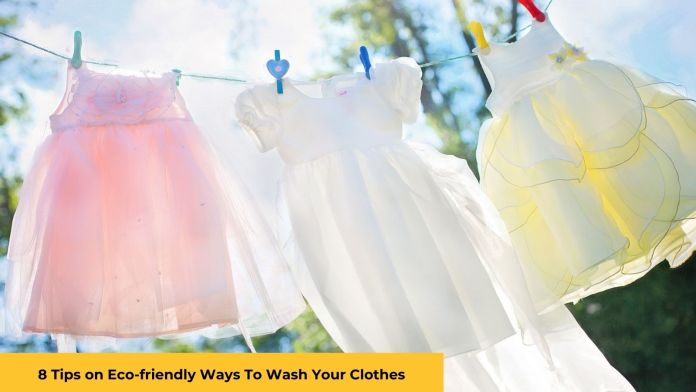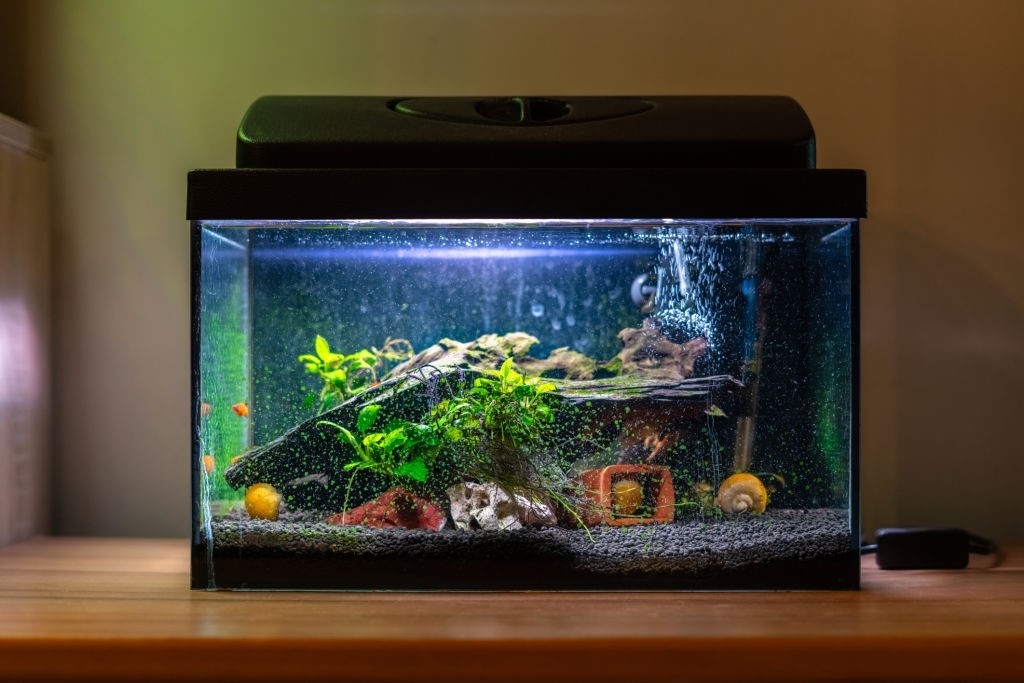Eco-friendly ways to wash your clothes involve reducing energy consumption, water usage, and environmental impact. This article will discuss some tips for a more sustainable laundry routine:
Tip #1: Eco-friendly laundry detergent
Opting for eco-friendly laundry detergents is a great way to reduce your environmental impact while doing laundry. Traditional laundry detergents often contain harsh chemicals harmful to the environment. They may cause skin irritations for those with sensitive skin. These detergents are typically made with plant-based, biodegradable ingredients and are free of phosphates, chlorine, and other harmful chemicals. Eco-friendly laundry detergent sheets are also often packaged in sustainable and recyclable materials, minimizing waste.
Moreover, eco-friendly laundry detergents can be gentler on your clothes and help preserve their quality over time. When choosing an eco-friendly detergent, look for certifications like Green Seal or EcoLogo, which ensure that the product meets specific environmental standards.
Tip #2: Cold water
Washing clothes with cold water reduces energy consumption, as most of the energy used in a wash cycle goes toward heating the water. Cold water is also gentler on fabrics and can prevent color fading.
Tip #3: Do full loads
This method maximizes the efficiency of your washing machine and reduces the amount of water, energy, and detergent used per load. When you wash smaller loads, you still use much water and energy, even though you wash fewer clothes. By consolidating your laundry into full loads, you can reduce the amount of washes needed, saving water and energy resources.
Additionally, doing full loads helps minimize the wear and tear on your washing machine, extending its lifespan and reducing the need for repairs or replacements. This, in turn, lowers the environmental impact of washing machine manufacturing, transportation, and disposal.
Tip #4: Use a high-efficiency washing machine
High-efficiency (HE) washing machines conserve water and energy compared to traditional machines. It uses advanced technology to adjust water levels and minimize energy consumption, reducing utility bills and carbon footprints. These machines also require less detergent, decreasing water pollution, and have faster spin speeds for quicker drying, further saving energy. Overall, high-efficiency washers optimize the washing process to reduce environmental impact.
Read more: 4 Ways to Make Your Home More Sustainable & Energy Efficient.
Tip #5: Line dry clothes more often
Hang your clothes out to dry using a clothesline or drying rack instead of a dryer. This method saves energy and is gentler on fabrics, while dryers consume energy, can damage fabrics, and increase electricity costs. Line drying imparts a natural freshness but may not suit all climates and takes longer than a dryer.
Tip #6: Wash clothes less frequently
Try to wear clothes more than once before washing, when possible. Overwashing not only can damage clothes but also waste water and energy. It also helps maintain the colors and fabric quality, ultimately extending the lifespan of your clothes while being more environmentally friendly.
Tip #7: Use eco-friendly fabric softeners
Using eco-friendly fabric softeners is a responsible choice for the environment and personal well-being. Eco-friendly fabric softeners are best for eco-friendly washing because they are made with natural, biodegradable ingredients, reducing the environmental impact. They avoid harsh chemicals that can pollute waterways and harm aquatic life. Moreover, these softeners are gentle on clothes and skin, making them suitable for individuals with allergies or sensitivities.
Tip #8: Pre-treat stains
Pre-treating stains is essential because it increases the chances of successfully removing them and reduces the need for multiple washes. By applying a stain remover or soaking the affected area in a cleaning solution before washing, you can break down and loosen the stain, making it easier for the washing process to eliminate it. Pre-treating stains helps maintain the appearance and longevity of your garments and saves water, energy, and detergent by minimizing the need for additional wash cycles.
Read more: Can Dry Cleaners Remove Stains?
Before You Leave …
By adopting these eco-friendly laundry practices, you can help reduce your environmental impact while keeping your clothes clean and fresh. Are you looking for more environment-related content on Green House Center? Here is more:





















